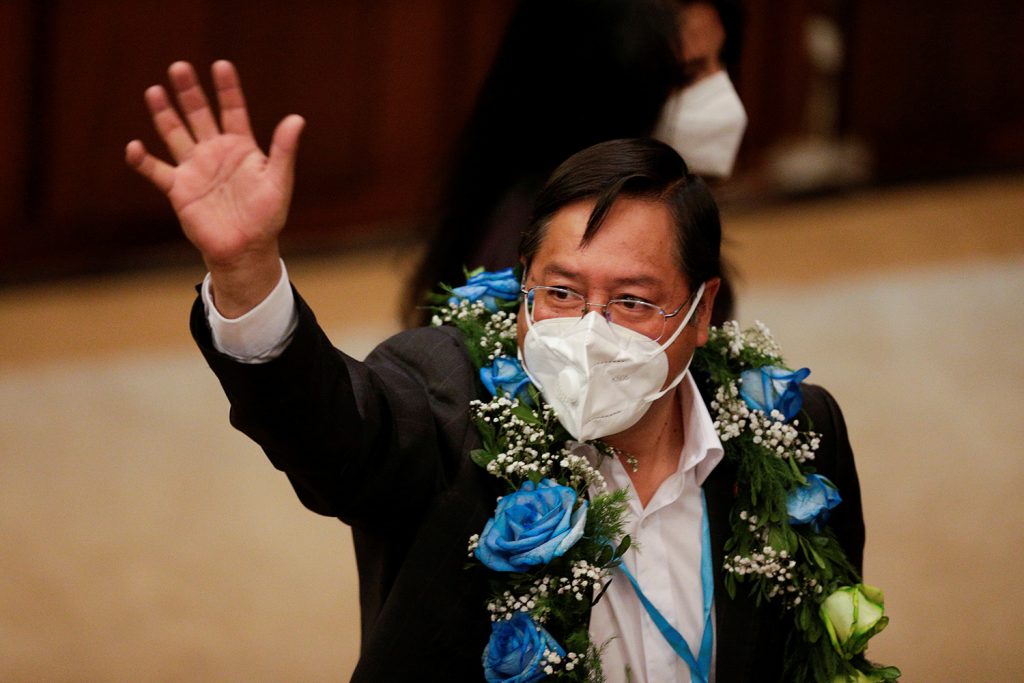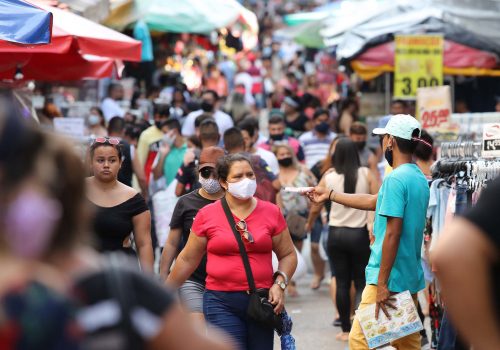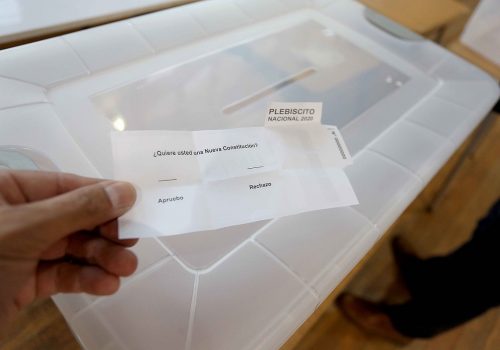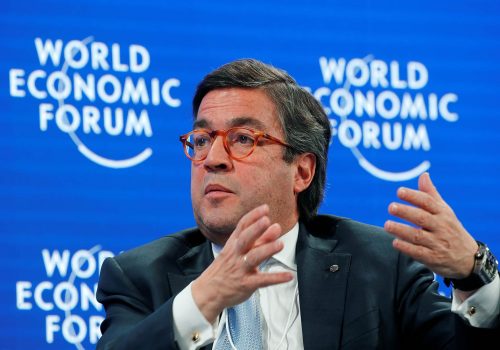Bolivia held its delayed 2019 general elections this October, following eleven tumultuous months of uncertainty during an interim government transition and the ongoing global health emergency. During this period, the government was determined to ensure that the twice-postponed electoral process abided by democratic guidelines through transparent and credible elections. Luis Arce, former Minister of Economy and Public Finance and presidential candidate of the Movement Towards Socialism (MAS) party, was declared the winner with 55.1 percent of the vote.
The MAS party, previously headed by former President Evo Morales, has deep and longstanding connections to Bolivia’s significant indigenous population and working class, which allowed MAS to retain power for nearly two decades. When Morales came into office in 2006, he enjoyed the highest public approval rating in Latin America and of any previous president in Bolivia’s democratic history, his 81 percent rating closely followed only by Former Argentina President Nestor Kirchner’s 80 percent. Support for MAS has weaned over the years, however, despite the October 23 victory. Morales’s defiance of a 2016 referendum prohibiting his run for reelection as he sought a fourth term, which led to his resignation and flight from the country in October 2019, further deteriorated public faith in MAS.
Bolivia’s current tempestuous political climate has resulted in lingering public concerns about the path that an Arce presidency might forge. Many Bolivians remain skeptical of MAS following the 2019 electoral fraud accusations, while MAS supporters have voiced criticism over perceived mismanagement of COVID-19 by Interim President Jeanine Áñez, also a MAS opponent. As Arce prepares to begin his term on November 8, he must consider Bolivia’s priorities and relationships in the region in order to secure prosperity for the nation and a continued commitment to upholding democracy.
Progressive fiscal policies lie at the core of the MAS party, a priority that will persist despite low government funds as a result of the pandemic. Based on a campaign promise to repair the economy, Arce’s government is expected to follow a nationalist approach and implement some austerity measures, including a wealth tax, but has vowed not to cut public spending. However, overcoming the dire effects of COVID-19 during a time of heightened political fragmentation will be no easy task for the new administration. Bolivia remains one of the poorest countries in Latin America and currently holds the fifth-highest per-capita death rate in the world from COVID-19. The country’s economy has suffered immensely from the pandemic’s shutdown mandates, largely impacting employees in the informal sector, which employs close to 80 percent of Bolivia’s population. With a projected gross domestic product (GDP) drop of 8 percent for 2020, Arce will be inheriting a crippling recession and an economy on the brink of collapse.
If the year 2020 has offered any lessons, it is that cross-sector and cross-country harmonization is paramount to prosperity. Arce plans to restore diplomatic relations with longtime allies Cuba and Venezuela, which were broken under Añez’s administration. MAS has also received staunch support from Argentina and Nicaragua, nations bound by common ideology and, like Cuba and Venezuela, part of the Puebla Group, a coalition of left-leaning leaders in favor of policy alternatives to neoliberalism. Bolivia should also consider forming alliances and restoring relationships with regional neighbors, including the United States—a bilateral relationship that was severed when Morales terminated the US-Bolivia bilateral investment treaty in 2012. And, as the United States prepares to welcome its next administration, countering the anti-US sentiment that has grown as a result of the United States’ long absence in Bolivia and Morales’s opposition to US policy in Latin America, especially regarding drug policy on coca cultivation, will be imperative. Moreover, in the hopes that US international dialogue and diplomacy progresses across Latin America, this will present an opportunity to more swiftly reestablish these relations notwithstanding Bolivia’s ties to governments with ideologies that differ from those of the United States.
In addition to the complexities of the pandemic, Arce must navigate mounting threats to Bolivia’s democratic stability. Increased political turmoil, social unrest, and heightened political polarization in Bolivia jeopardize security in the country and throughout Latin America. Across the region, a rise in fatigue from COVID-19’s effects—including amplified socioeconomic inequalities and plummeting already-fragile economies—has been catalytic to a growing sense of undelivered democratic promises.
Peace and and stability among Bolivians must be prioritized in order to mitigate obstacles to a free and open democracy. Arce can fulfill his campaign promise of building unity by shaping partnerships with the private sector and business community, unions, and across the political spectrum. Moreover, there are ample avenues for Bolivia to collaborate with its regional counterparts and the US administration on policies including health, democratic institution building, and economic integration and growth.
In the 1994 Summit of the Americas, Bolivia and thirty three nations of the Western Hemisphere vowed to preserve and strengthen democracy in the region. As Bolivia enters this new chapter in its history, it has a unique opportunity to work with partners toward a shared vision and common commitment to democracy and regional cooperation.
Gabriella Cova is an intern with the Adrienne Arsht Latin America Center of the Atlantic Council.
Further reading:
Image: Bolivia's Luis Arce waves before receiving his credentials as elected President, in La Paz, Bolivia October 28, 2020. REUTERS/David Mercado



